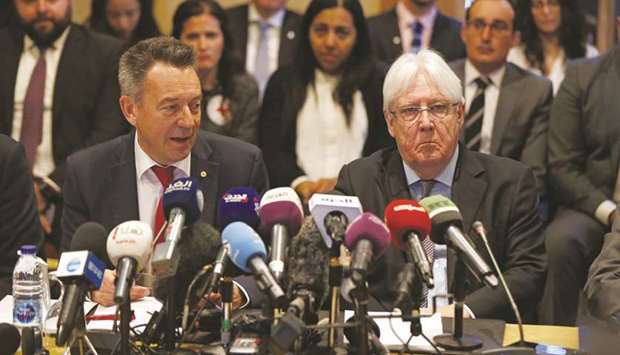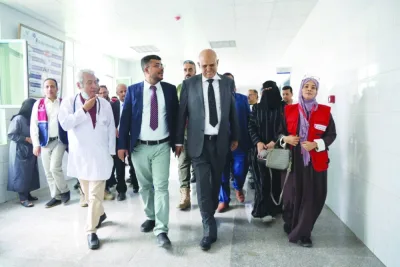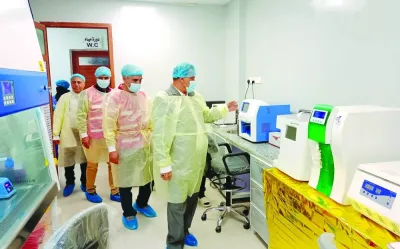A UN special envoy told warring Yemenis yesterday that rapid implementation of a prisoner swap deal would help advance efforts at a political settlement of a nearly four-year-old war.
The envoy, Martin Griffiths, said finalising a list of the thousands of prisoners should be completed by the end of three days of talks in Amman between teams from the Saudi-backed government and their Houthi adversaries.
The list is to be handed over to the world body and the International Committee of the Red Cross (ICRC).
“It will lay the basis for the next step which will be to see that release happening,” Griffiths told delegates before the start of the second round in Amman in less than a month.
Griffiths stressed how important the swap deal was to achieving progress in ending a conflict that has killed tens of thousands and left 15.9mn people facing severe hunger.
“Success in this regard is not only of huge importance for those who will be released.. but also for the broader political process in which we have hopes the parties will together resolve the issues that divide them and return Yemen to peace.” As he spoke, the new head of the UN mission tasked with overseeing a fragile ceasefire deal in Yemen, Danish Major General Michael Anker Lollesgaard, arrived in the port city of Hodeidah.
Implementation of the deal, reached in Sweden in December, has stalled as the two sides cannot agree on who will control the port — a lifeline for millions of Yemenis — and the city after a planned redeployment of their forces. The prisoner swap was one of the least contentious confidence-building measures at the peace talks in Sweden.
The Amman prisoner negotiations will verify names of about 15,000 prisoners exchanged by both sides, some of whom include Saudis and other nationals fighting on the government side.
The head of the International Committee of the Red Cross (ICRC), whose agency would oversee the operation, said implementing the deal could take weeks and involve the repatriation of third country nationals.
“Trust doesn’t come from one day to another. It is a difficult process and we know this is work in progress,” ICRC President Peter Maurer said at the start of the Amman talks.
The conflict, widely seen in the region as a proxy war between Saudi Arabia and Iran, has been bogged down in a military stalemate for years.

United Nations Special Envoy to Yemen Martin Griffiths and International Committee of the Red Cross President Peter Maurer speak to the media during a new round of talks by Yemen’s warring parties on a prisoners swap deal, in Amman, yesterday.


